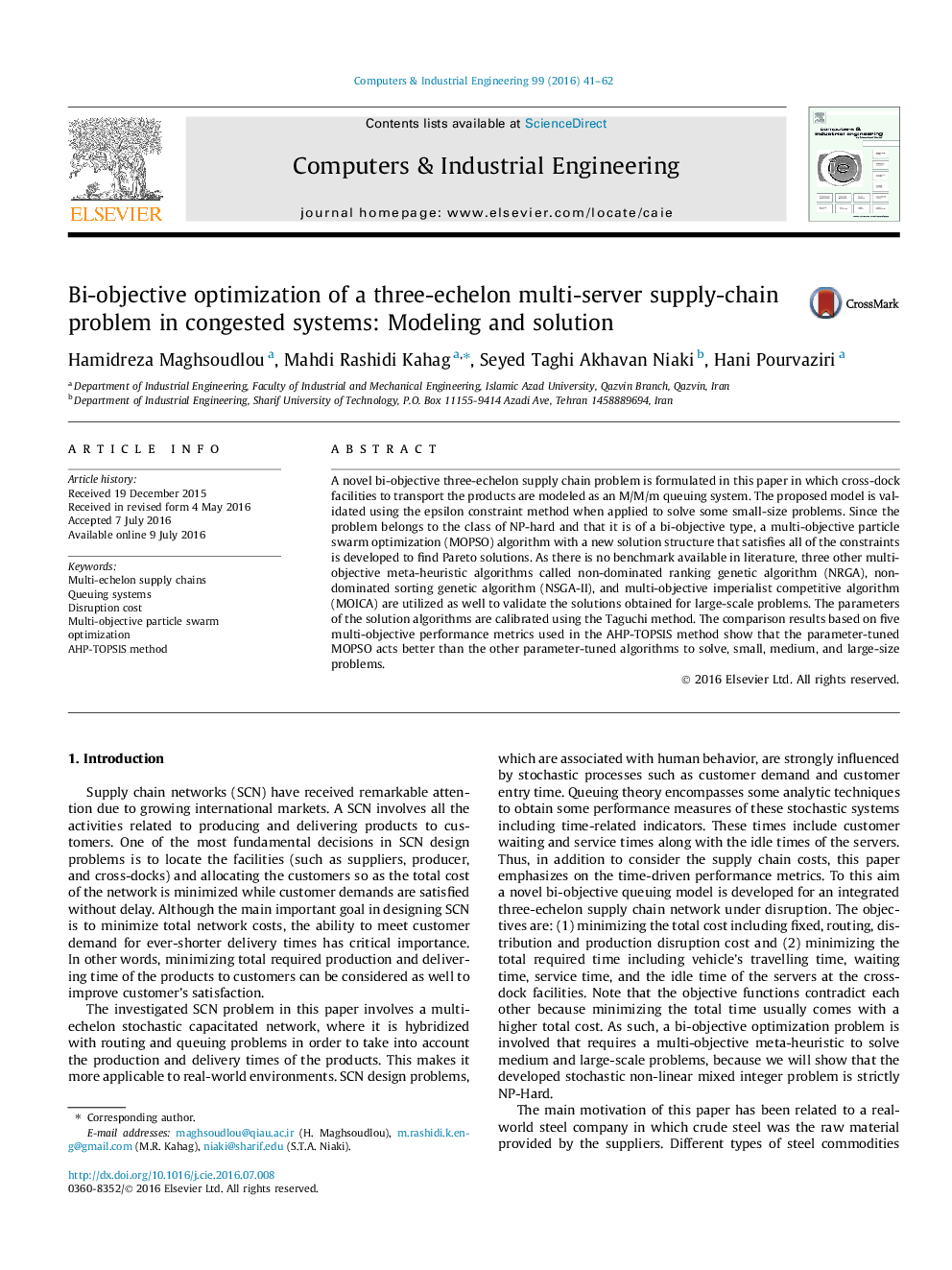| Article ID | Journal | Published Year | Pages | File Type |
|---|---|---|---|---|
| 1133238 | Computers & Industrial Engineering | 2016 | 22 Pages |
•A novel bi-objective three-echelon supply chain problem is modeled.•Cross-docks to transport the products are modeled as an M/M/m queuing system.•The model is validated using the epsilon constraint method for small-sized problems.•An MOPSO algorithm with a new chromosome is developed to find Pareto solutions.•The parameter-tuned MOPSO acts better than NRGA, NSGA-II, and MOICA.
A novel bi-objective three-echelon supply chain problem is formulated in this paper in which cross-dock facilities to transport the products are modeled as an M/M/m queuing system. The proposed model is validated using the epsilon constraint method when applied to solve some small-size problems. Since the problem belongs to the class of NP-hard and that it is of a bi-objective type, a multi-objective particle swarm optimization (MOPSO) algorithm with a new solution structure that satisfies all of the constraints is developed to find Pareto solutions. As there is no benchmark available in literature, three other multi-objective meta-heuristic algorithms called non-dominated ranking genetic algorithm (NRGA), non-dominated sorting genetic algorithm (NSGA-II), and multi-objective imperialist competitive algorithm (MOICA) are utilized as well to validate the solutions obtained for large-scale problems. The parameters of the solution algorithms are calibrated using the Taguchi method. The comparison results based on five multi-objective performance metrics used in the AHP-TOPSIS method show that the parameter-tuned MOPSO acts better than the other parameter-tuned algorithms to solve, small, medium, and large-size problems.
Graphical abstractFigure optionsDownload full-size imageDownload as PowerPoint slide
